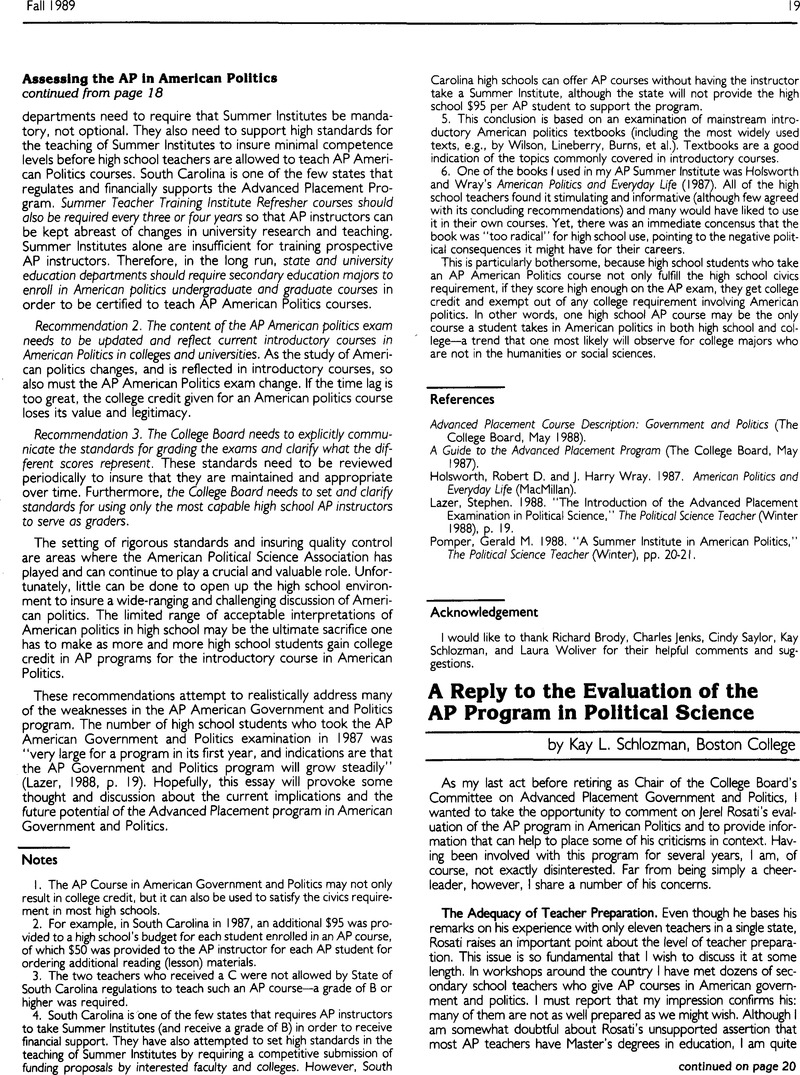No CrossRef data available.
Article contents
A Reply to the Evaluation of the AP Program in Political Science
Published online by Cambridge University Press: 30 October 2015
Abstract

Information
- Type
- Advanced Placement in Political Science
- Information
- Copyright
- Copyright © American Political Science Association 1989
References
Notes
1. I am focusing here on the implications of inadequate teacher preparation for the teaching of AP American politics. David Conradt's accompanying article considers the problem from the perspective of grading the exam.
2. Rosati cites no evidence to support his claim that “Most colleges and universities provide college credit for an introductory course in American Politics if students score 3 or above on the exam.” To the best of my knowledge, nobody really knows exactly how the college departments are treating AP students. Indeed, I consider the College Board to be remiss in not collecting and disseminating the relevant information.
3. Advanced Placement Course Description: Government and Politics (New York: College Entrance Examination Board, 1988), pp. 3–8Google Scholar.
4. See Schlozman, Kay Lehman, “Advanced Placement in Political Science,” PS (Winter, 1986)Google Scholar for a fuller discussion of both the extensive efforts made to learn what is taught in college classrooms and the rationale of the AP Government and Politics Program.
5. The AP Committee is concerned about a related matter. College textbooks in American politics are revised every three to four years. High schools, unfortunately, live with textbooks for longer periods of time. Everything possible should be done to encourage the secondary schools to keep their textbooks current.
6. See Committee on Pre-Collegiate Education, “Political Education in the Public Schools: The Challenge for Political Science,” PS, 4 (Summer, 1971): 432–457Google Scholar.

